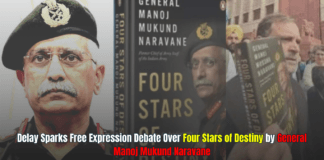Ad
Rahul Gandhi’s Return to Parliament: What It Means and What’s Next
After the Supreme Court recently put a hold on his conviction in a criminal defamation case, Rahul Gandhi, a prominent leader of the Congress party, has been given the green light to resume his role in the Lok Sabha. This decision marks his official reinstatement as the Member of Parliament (MP) representing Wayanad. But what changes for Rahul with this development, and what perks will he regain as an MP?
Restoration of Benefits for Rahul Gandhi:
- Rahul Gandhi’s comeback to Parliament comes with a reinstatement of various perks and benefits that MPs are entitle to. These perks are detail in the Members of Parliament Act of 1954, which specifies the benefits available to MPs. As an MP Rahul will receive a monthly salary of ₹1 lakh during his term in office. Furthermore when the Parliament is in session Rahul Gandhi will receive an additional allowance of ₹2,000 for each day he actively participates.
- Moreover, MPs like Rahul are entitle to a travel allowance, which covers expenses related to travel, including transit by railways. Other perks include medical facilities for both the MP and their family members, housing provisions, telephone services, water, and electricity.
- The Housing and Telephone Facilities (Members of Parliament) Rules, 1956, outline the specifics of housing for MPs. According to these rules an MP is provided with housing accommodation usually in the form of a flat, for the entire duration of their term. If an MP prefers a bungalow as their residence and makes a request for it, they might be require to pay the full normal license fee. Notably, before his disqualification, Rahul Gandhi allotted an official residence at 12 Tughlak Lane in Delhi.
ALSO READ Supreme Court Stays Rahul Gandhi’s Conviction in Defamation Case
Legal Proceedings and What Lies Ahead:
- To understand the recent events leading to Rahul’s return to Parliament, we need to delve into the legal proceedings surrounding his case. On March 23, 2023, Chief Judicial Magistrate HH Verma in Surat had awarded Rahul Gandhi a conviction and sentence in a criminal defamation case.
- Prior to this, Rahul had sought relief by approaching the Sessions Court to suspend his conviction. Unfortunately, the Sessions Court rejected his plea. In response, Rahul escalated the matter to the High Court (HC), which also dismissed his plea.
- The recent stay granted by the Supreme Court effectively puts Rahul’s conviction on hold. In simpler terms, it’s as if the conviction never happened. However this pause is only temporary and is contingent upon the Appellate Court decision on the case. This means that while the conviction is held in abeyance the case itself is far from over.
In Conclusion:
The recent development that paves the way for Rahul Gandhi’s return to Parliament is not only significant for him but also raises questions about the legal processes and perks associated with being an MP. Meanwhile, with his reinstatement, Rahul is once again poised to engage in parliamentary activities represent his constituency and partake in the democratic process of the nation.
Ad






